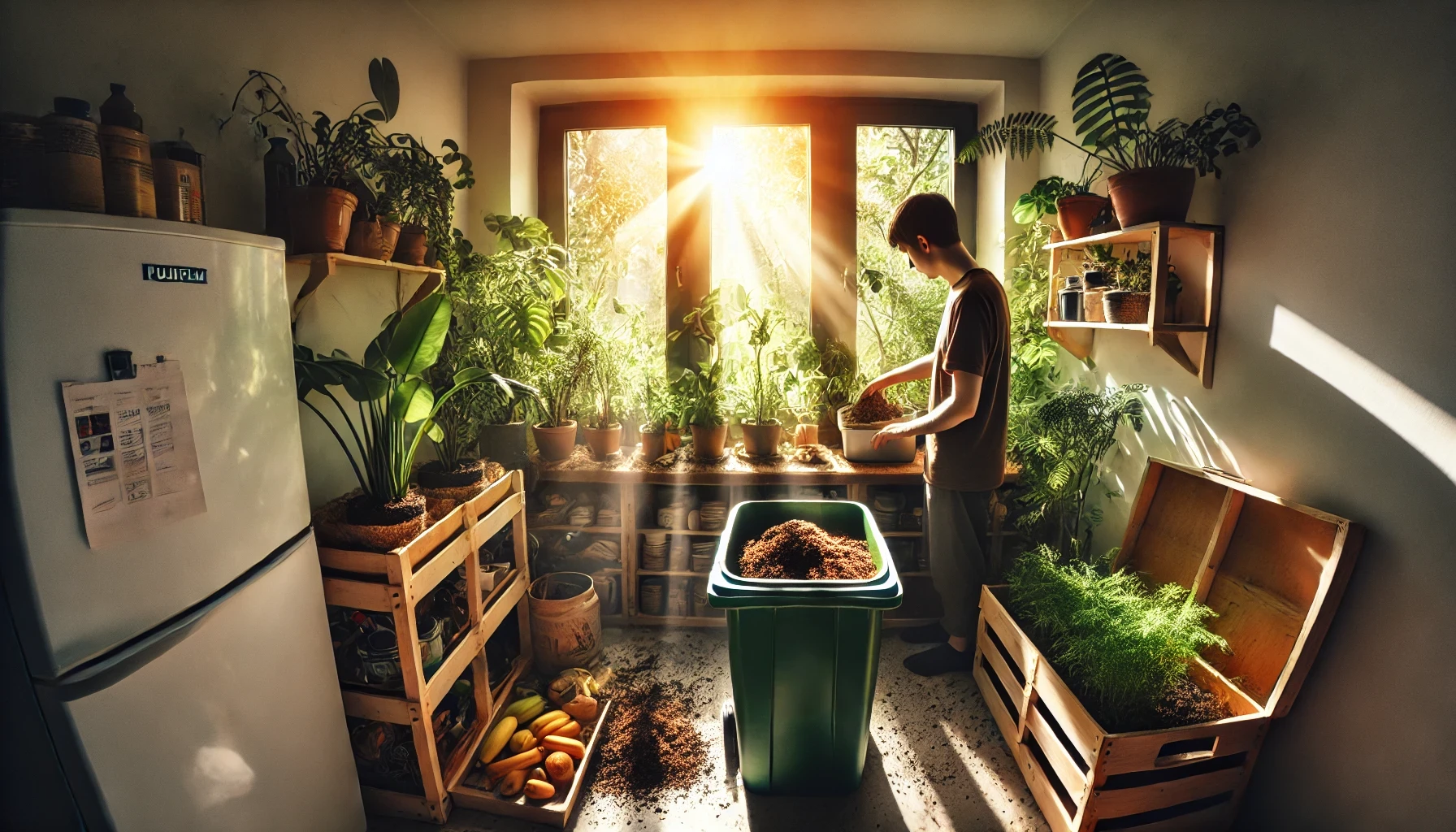1. Why Composting Matters: The Big Impact of Small Actions
Did you know that about 30% of what we throw away can actually be composted? When food scraps end up in landfills, they don’t decompose properly due to the lack of oxygen, which leads to the production of methane—a potent greenhouse gas. Composting helps divert this waste from landfills and transforms it into nutrient-rich “black gold” for plants, gardens, and even indoor plants. By starting your own small-space compost, you’ll reduce your carbon footprint and contribute to a healthier environment.
2. Can You Compost in a Small Space? Absolutely!
One of the biggest misconceptions about composting is that it requires a huge backyard. The truth is, you don’t need much room at all! Here are a few popular small-space composting options:
-
Bokashi Composting: A Japanese method that ferments food waste using a special mix of microbes. It’s perfect for indoor use since it doesn't produce the odors that traditional composting methods do. You’ll just need a small, airtight container.
-
Worm Composting (Vermiculture): Don’t worry, the worms do all the work here! A small, ventilated bin with red wigglers can fit under your kitchen sink or on a balcony. The worms break down food scraps into nutrient-dense compost.
-
Compact Composting Bins: For those with a little more space (a balcony, patio, or even a large kitchen), there are several compact compost bins available that are odor-proof and designed for indoor use. They allow you to compost without the need for a full-sized outdoor bin.
3. How to Get Started with Composting in Small Spaces
Starting to compost in a small space might sound tricky, but it’s actually pretty straightforward. Here’s what you need to know:
-
Choose the Right System: Depending on your space, budget, and time commitment, choose between Bokashi, vermiculture, or a small composting bin. Bokashi is great for beginners because it’s low-maintenance, while worm bins are fantastic if you have space to house a worm farm.
-
Know What You Can Compost: In any composting system, certain materials break down better than others. Commonly compostable items include fruit and vegetable scraps, coffee grounds, eggshells, and shredded paper. Avoid meat, dairy, and oily foods in most small-space systems as they take longer to break down and can create odors.
-
Monitor the Process: Composting is a natural process, but a little care can go a long way. In a worm bin, for example, keep the compost moist (but not too wet) and make sure the worms are happy. For Bokashi, you’ll need to periodically drain off excess liquid (which makes a great fertilizer!).
4. Unique Benefits of Composting in Small Spaces
Beyond the environmental impact, small-space composting offers a range of unique benefits:
-
Reduces Household Waste: You’ll be amazed at how much less trash you throw away each week once you start composting. Even in small spaces, the reduction in garbage is noticeable.
-
Creates Rich Soil for Plants: If you have houseplants, balcony gardens, or potted plants, your compost can serve as a nutrient boost. You don’t have to compost a lot to produce enough for indoor plants or small garden beds.
-
Saves Money on Fertilizers: Composting turns your food waste into something valuable—free fertilizer! By adding compost to your plants, you’ll spend less on commercial fertilizers.
-
Satisfies the Eco-Conscious: Composting gives you a sense of accomplishment. By diverting waste from landfills and contributing to a sustainable lifestyle, you’re making a difference, no matter how small your space may be.
5. Composting Troubleshooting Tips
While composting is generally easy, there are a few common issues that may arise. Here’s how to fix them:
-
Odor Problems: If your compost starts to smell, it’s likely too wet or you’ve added too many “greens” (such as food scraps). Add more “browns” like shredded newspaper, cardboard, or dried leaves to balance it out.
-
Fruit Flies: These can be a nuisance, but they’re easy to prevent. Make sure you’re covering fresh food scraps with a layer of “browns” to deter flies. For worm bins, a tight lid with good ventilation also helps.
-
Worms Escaping: If you’re using a worm bin and notice worms trying to escape, the bin may be too acidic or too moist. Add more dry bedding material like shredded paper or coconut coir, and check the food you’re adding—avoid citrus and onions.
Conclusion: Composting Is for Everyone, No Matter the Space
You don’t need a huge garden or even a backyard to reap the benefits of composting. Even in the smallest of spaces, you can turn food scraps into valuable compost, reduce waste, and contribute to a healthier planet. Whether you opt for a worm bin, Bokashi system, or a compact indoor compost bin, the important thing is that every little bit helps.
















